1. Lions — Yes, Actual Lions
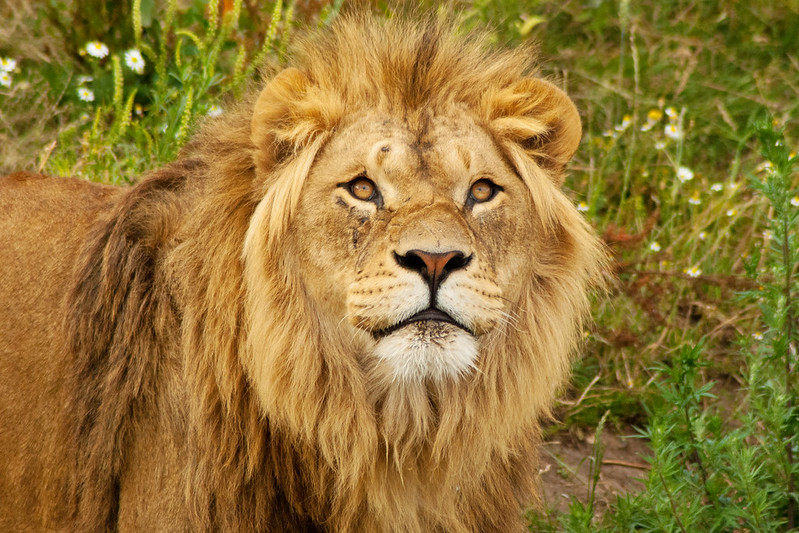
Forget Labradors. For a time, nothing screamed “I’ve arrived” quite like a lion lounging next to your infinity pool. In Dubai, some elite pet owners took things to wild extremes, posting photos of their lions riding in the front seat of Bentleys or playing in backyards like oversized golden retrievers. These animals were seen as the ultimate flex — powerful, majestic, and completely impractical. Lions are apex predators with intense needs for space, stimulation, and raw meat… not exactly ideal for apartment living. After multiple incidents where lions escaped or scared neighbors (surprise!), the UAE passed Federal Law No. 22 of 2016, making it illegal to own them privately. Now, unless you’re a licensed zoo, your lion dreams are officially caged.
2. Cheetahs — Fast, Fierce, and Not a House Cat
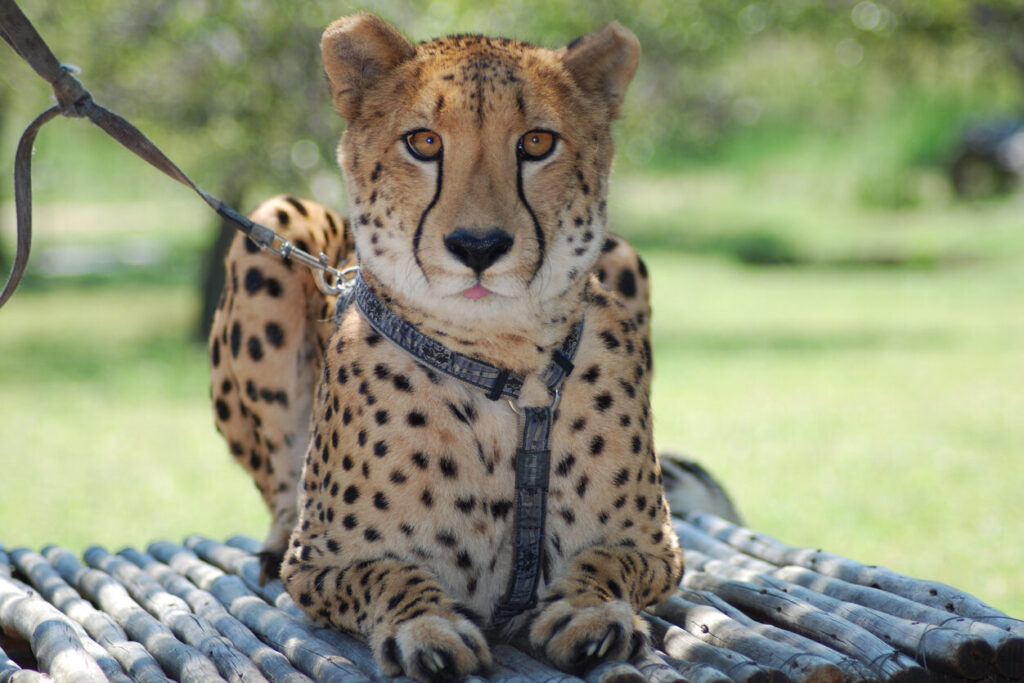
Cheetahs were once the it-girl of the Dubai exotic pet scene. With their gorgeous spots and graceful frame, they were often seen in selfies beside pool decks or even dressed in rhinestone collars — because nothing says “casual” like a cat that can hit 70 mph. But here’s the truth: cheetahs are shy, easily stressed animals that don’t thrive in captivity. Many were illegally trafficked as cubs from Africa, torn from their mothers, and smuggled into the Gulf region. As glamorous as they looked in photos, most cheetahs suffered from malnutrition, behavioral issues, and extremely short lifespans. Since the 2016 crackdown, private cheetah ownership has been banned — and rightfully so. If you want something spotted and chic, maybe just buy a leopard-print jacket.
3. Tigers — Because Apparently a Lion Wasn’t Extra Enough
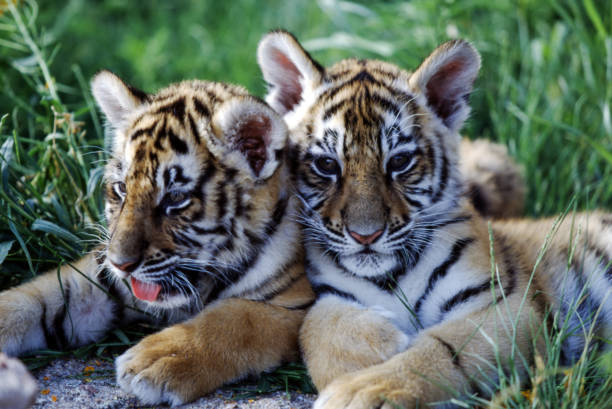
If lions were bold, tigers were next level. Dubai’s elite once saw tigers as the ultimate exotic pet — bigger, rarer, and more intimidating. These striped giants appeared in luxury car TikToks, stretched out across marble floors, or even splashing in backyard pools. Tigers, of course, are solitary and notoriously dangerous. Even a “trained” tiger is a ticking time bomb, capable of deadly force if startled or stressed. Their strength, unpredictability, and space needs make them entirely unsuitable for domestic life — unless your home includes 20 acres of reinforced fencing and a moat. Today, owning one will land you serious fines or jail time in the UAE. Lesson: if it can eat you in one swipe, maybe it’s not a cuddle buddy.
4. Wolves — Not Your Average Dog Upgrade
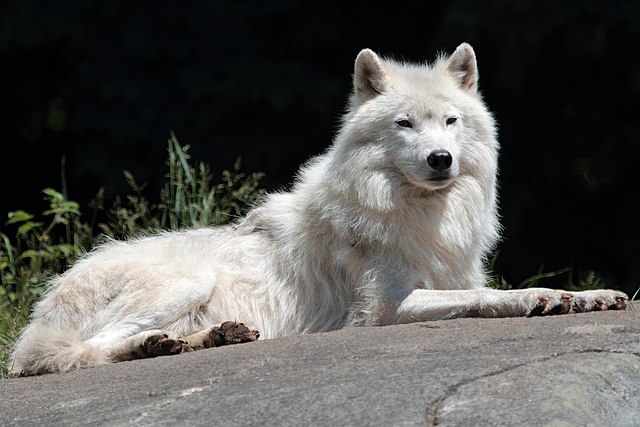
Some residents decided dogs were too tame and opted for wolves — as in actual wolves. These animals were often kept in luxury villas or desert compounds, promoted as “cooler than huskies” and somehow more authentic. In reality, wolves are fiercely independent, wary of humans, and require complex social structures that can’t be replicated in captivity. Many of these pets were hybrids — part wolf, part dog — and unpredictably aggressive. Despite being illegal to own now, a few still turn up in the underground exotic pet trade, often misunderstood and mistreated. Dubai officials included wolves in the 2016 exotic animal ban, not only to protect people but to spare the animals from lives they were never meant to live.
5. Monkeys — Cute Until They Hit Puberty
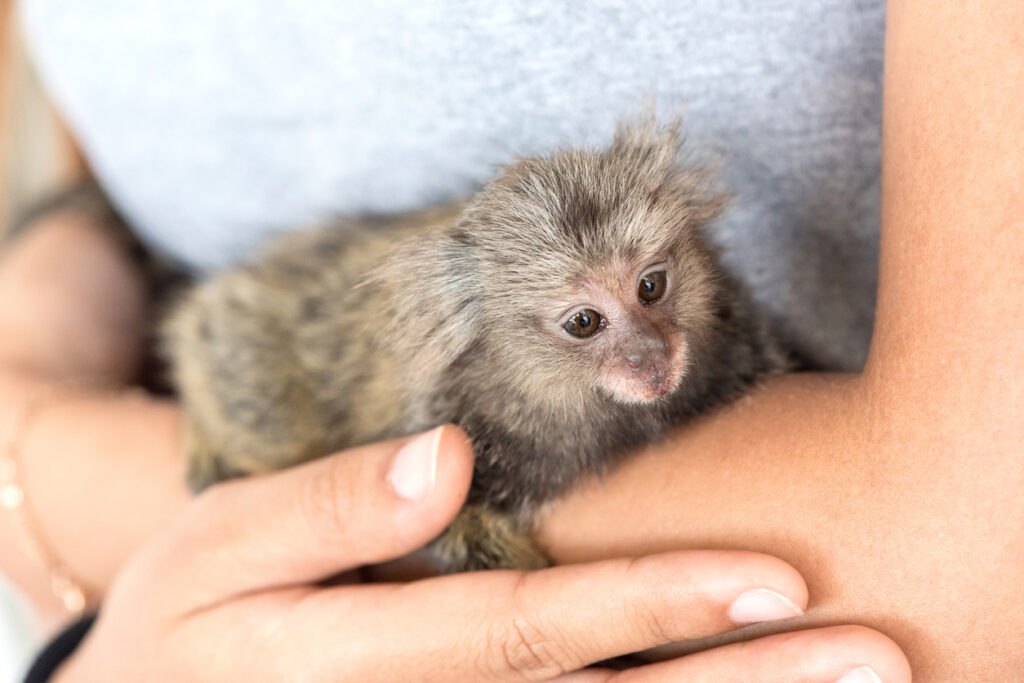
Baby monkeys are undeniably cute — tiny hands, expressive eyes, Instagrammable outfits. But they grow up. And when they do, they become loud, territorial, unpredictable, and — let’s be honest — little tyrants. In Dubai, wealthy individuals once treated monkeys like novelty pets, dressing them in clothes and treating them like toddlers. But primates, especially macaques and capuchins, are high-maintenance and prone to aggression once they hit puberty. They can also carry dangerous diseases transmissible to humans, like herpes B and hepatitis. The UAE banned private monkey ownership due to these risks, and most are now kept only in licensed wildlife centers. If you want something mischievous with tiny hands, stick to a toddler.
6. Falcons — Technically Legal, Incredibly Fancy
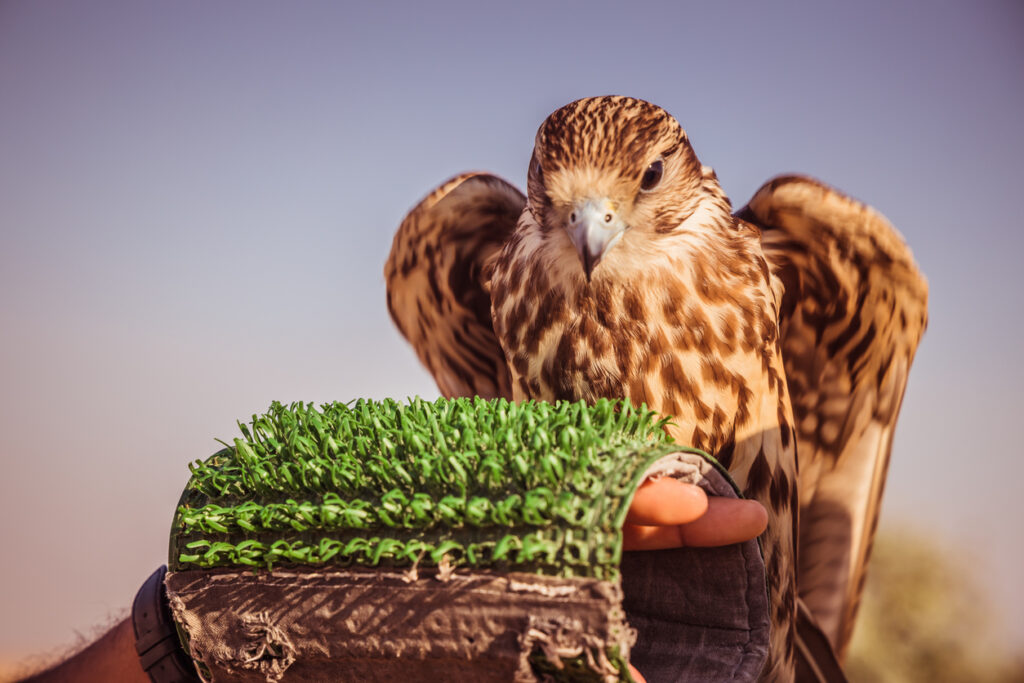
Falcons are the exception on this list — because not only are they still legal, they’re deeply respected in UAE culture. Falconry is a centuries-old tradition in the Gulf, symbolizing heritage, precision, and honor. These birds aren’t just pets — they’re professionals. They have passports, get medical treatment at state-of-the-art falcon hospitals, and even fly first class on Emirates (yes, in the cabin). Falcon owners must be trained and licensed, and the birds themselves are microchipped and carefully tracked. So while falcons still carry elite status, it’s all highly regulated — and backed by a cultural legacy far more meaningful than Instagram likes.
7. Snakes — Because Nothing Says “Luxury” Like Danger Noodles
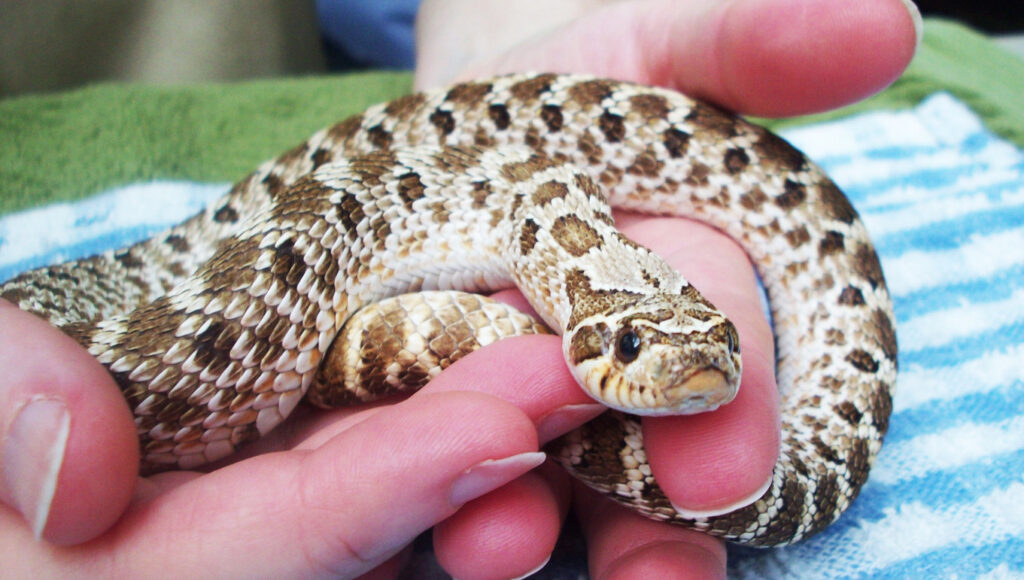
Exotic snakes — like pythons, boas, and even venomous vipers — slithered into Dubai’s pet scene with a certain cold-blooded appeal. Easy to feed (once a week), low maintenance (until they escape), and visually striking, they appealed to those wanting a pet with a touch of danger. But many snake species grow far larger than expected, require strict temperature and humidity controls, and can be deadly if handled improperly. There have been cases of pet snakes found in apartment buildings, causing panic among neighbors. After the 2016 law, most exotic snakes were banned, with only licensed handlers and institutions allowed to keep them. If you’re looking for low-drama companions, maybe skip the reptiles with fangs.
8. Crocodiles — Absolutely Not a Bathtub Pet
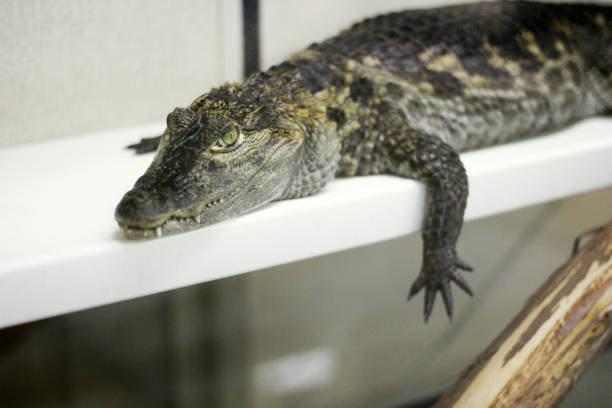
Believe it or not, there was a time when owning a baby crocodile in Dubai was a thing. Some saw it as a “cool” addition to their villa or garden pond — until it grew into a 6-foot prehistoric eating machine. Crocodiles are aggressive, territorial, and require extremely controlled environments to stay healthy (and contained). Several escaped or were abandoned once they became too dangerous to manage, prompting authorities to include them in the exotic animal ban. Today, anyone caught with a pet croc faces hefty penalties. If you’re into prehistoric vibes, we suggest a Jurassic Park movie night instead.
9. Hyenas — Hyenas. Seriously.
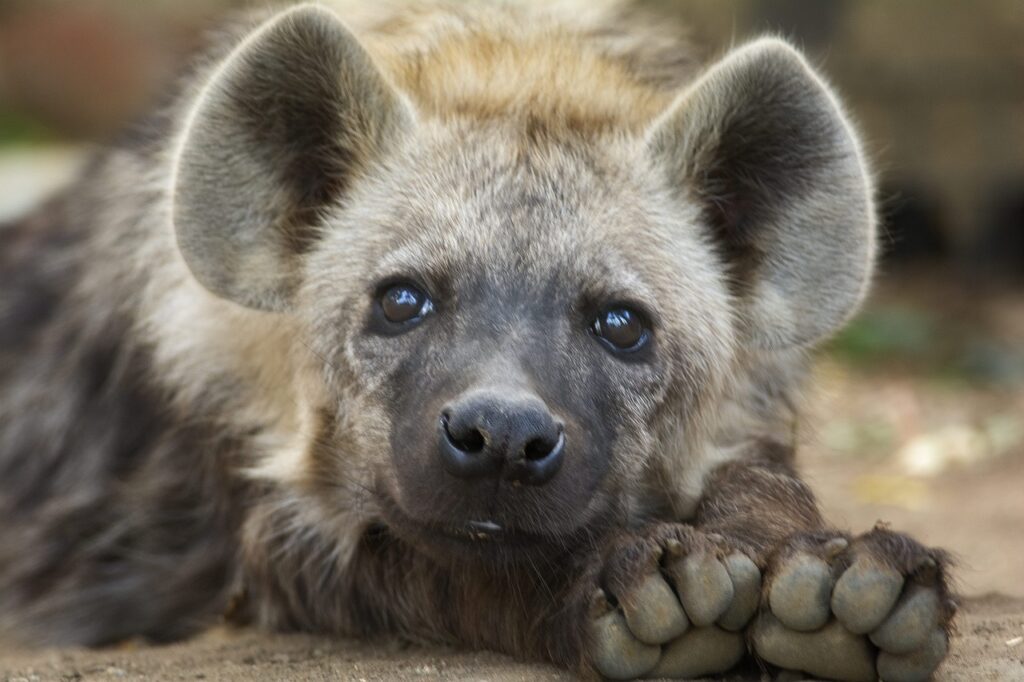
Yes, hyenas. Wild, aggressive, and often misunderstood, hyenas were trafficked from Africa and smuggled into private collections across the UAE. Some saw them as rare and intimidating pets, especially males who wanted an animal with a “don’t mess with me” vibe. But hyenas aren’t just eccentric — they’re unpredictable, powerful, and have one of the strongest bite forces of any mammal. They’re also highly intelligent and require complex social interaction — something they definitely don’t get in a penthouse suite. Banned under the 2016 law, hyenas are now illegal to own in Dubai, and thankfully, most have been relocated to sanctuaries or wildlife centers. Want wild energy? Try adopting a pug. Same weird noises, less chance of losing a finger.


